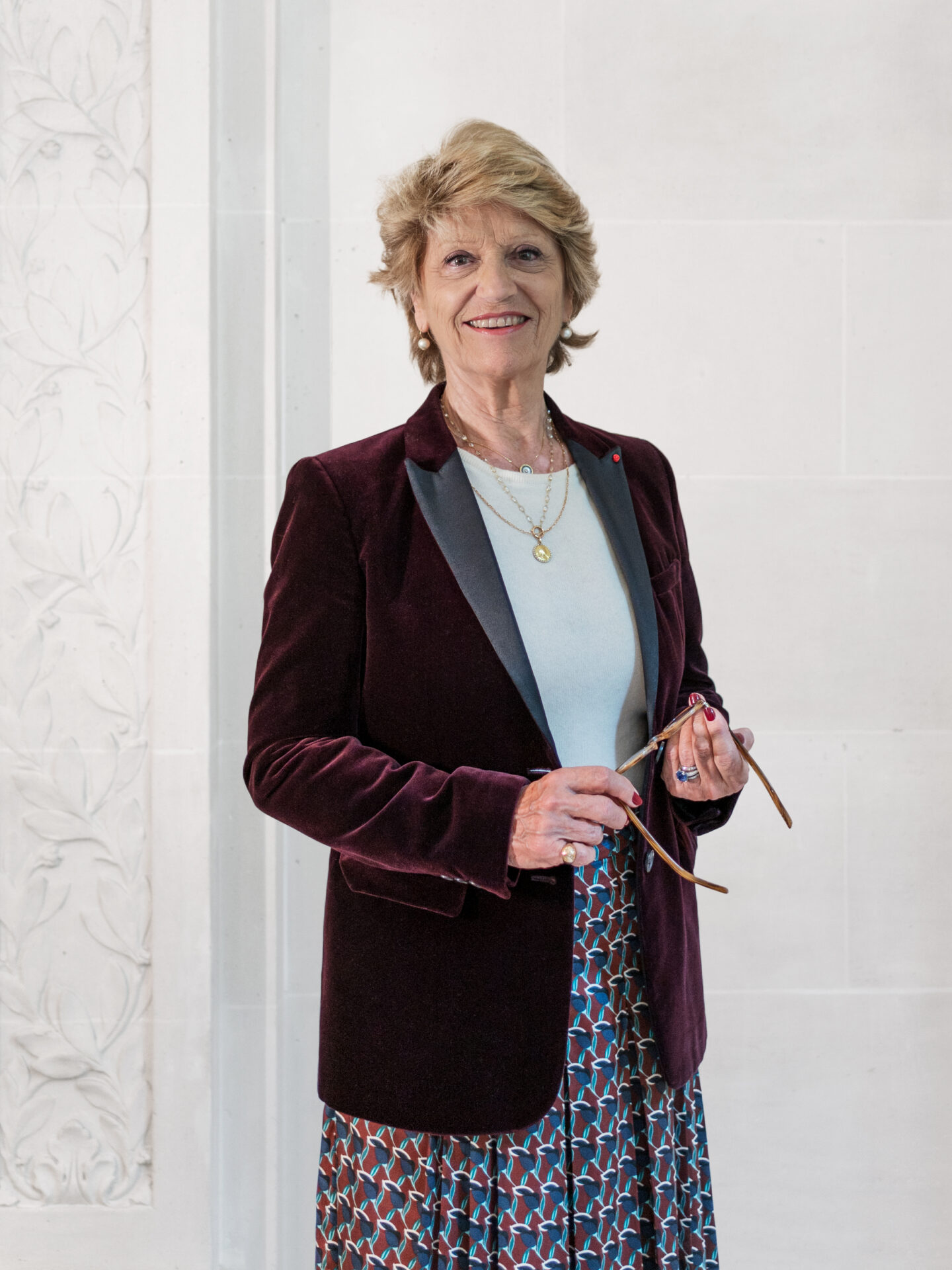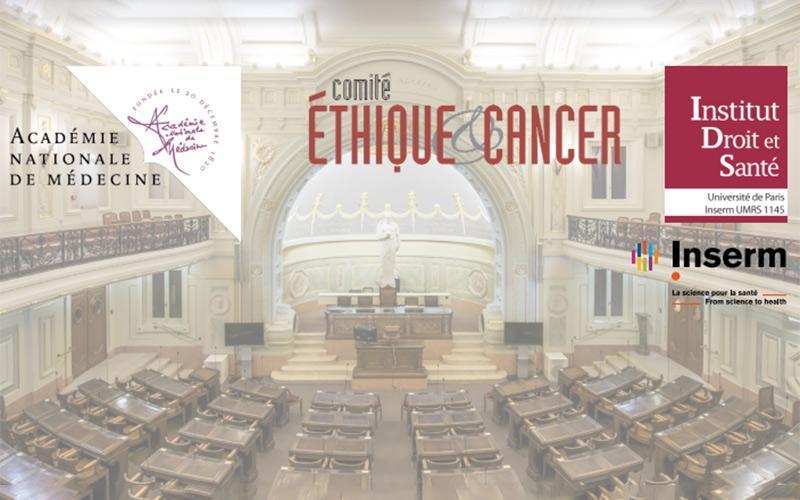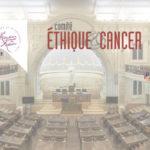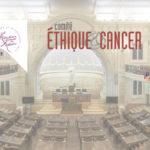Article published with the kind permission of the Journal de Droit de la Santé et de l'Assurance Maladie
Legal, medical and ethical perspectives
Medically assisted procreation: access to origins. The bioethics law of August 2, 2021 gives adult children the identity of the donor*
To know or not to know. To be or not to be. Fundamental questions that we know can impact a lifetime and generate real suffering.
Guided by societal evolution and examples abroad, the bioethics law of August 2, 2021 provides a radically opposite response to those that preceded it. If it maintains the anonymity of the donation of gametes or the proposal to receive an embryo, between donors and recipients, it establishes the right of the child, born of an MAP and who has reached the age of majority, to know the identity of those who allowed his birth.
The knowledge of non-identifying data goes beyond the therapeutic necessity apprehended by the doctor alone.
It too will be available to the adult child who requests it.
The revelation of the gift therefore comes out of the secret. The ground swell was announced. It's surging today. Will it make the will to give disappear at a time when the shortage of donations would make the advances of the law ineffective? Will it bring the desired peace of mind to the child?
Before the law of August 2, 2021
The principle of anonymity
The bioethics laws of July 1, 1994, revised on August 6, 2004 and July 7, 2011 extended to gametes and embryos the principle of anonymity which prevailed for other donations of products and elements of the human body.
The parental project, the possible secrecy maintained on the PMA, the blooming of the family took precedence over the possibility of the child of knowing the identity of the donor.
Two texts then frame this principle of anonymity:
Article 16-8 of the Civil Code (CC): “ No information identifying both the donator of an item or product of his body and whoever received it cannot be disclosed. The donor cannot know the identity of the recipient nor the recipient that of the donor ».
Article L.1211-5 of the Public Health Code (CSP): “ The donor cannot know the identity of the recipient, nor the recipient that of the donor. No information identifying both the donor of an item or product of his or her body and who received it cannot be disclosed ».
Exemptions for non-identifying data
The only faculty derogating from this desire for anonymity is " the therapeutic need ". For whose benefit? First of all of the child whose care requires that his doctor be informed of his biological origin. Certainly, but without direct control over the event. Indeed, article L.1244-6 CSP specifies that this access to non-identifying medical information is reserved for the sole doctor who will have knowledge of it to treat a child conceived from donated gametes.
Therapeutic necessity also includes preventing the risk of consanguinity for two people in a couple resulting from ART with third-party donors. Would they come from the same donor? (EC, 2 Nov. 2015, no. 372121).
Similarly, the diagnosis of a serious genetic anomaly striking a donor: the latter can authorize his doctor to contact the ART Center so that the children resulting from his donation are informed and can benefit from genetic counselling.
However, the barrier of anonymity protecting identity does not fall. The child resulting from this procreation will never know who the biological donor is who allowed him to be there.
Same protection for embryo donation. The couple benefiting from an embryo donation because another couple has given up their parental project on this embryo will never know who is who. Neither does the child, except to benefit from non-identifying medical information if his condition requires it.
The organization of these protections
Unlike American, Russian or Chinese catalogues, the name, the beauty of the donor, the color of his hair, his IQ, his family and/or financial situation related to his profession will be forever ignored by the recipients of the donation, parents and child.
In his prudence, the legislator of the time required for the AMP, then PMA, public structures excluding the private profit-making structures of which one could fear that the omnipresent free concept in this field would be less well lived or respected.
It is the organizations, health establishments and health cooperation groups (GCS) authorized to collect gametes that keep this data for a minimum of 40 years and, whatever its medium, in anonymous form. Archiving is carried out under conditions guaranteeing confidentiality (article R.1244-5 CSP). It should be noted that even the French Federation of CECOS does not centrally store data relating to donors and gamete donations, although it constitutes a national network in the field of ART.
Only physicians who can carry out clinical and biological ART activities will be able to access this information.
As a high point of this regulation, it should be emphasized that no filiation link can exist between the author of the donation (of gametes or embryo) and the child resulting from an ART. This same child will never be able to question the responsibility of the donor. How could he, they will never know each other.
As early as 1994, the Constitutional Council had validated this construction of the anonymity of third-party donors, prohibiting children from knowing their identity.
This question of access to origins had been discussed again in 2012 before the Constitutional Council in the context of childbirth under secrecy or childbirth under X. The Constitutional Council had declared this birth in conformity with the constitution, not affecting " to the respect due to private life or to the right to lead a normal family life (QPC no. 2012-248 of May 16, 2012).
The commentary of the rendered decision states that “ the right to privacy does not imply a right of access to origins ».
These principles, which some thought were contrary to the protection of the best interests of the child, would they stand the test of time? Obviously not: it is the law of August 2, 2021.
The reasons for a reversal
How did the legislator come to overturn the principles that had hitherto governed access to origins?
International conventions, foreign examples and more surely the constant pressure of society on these subjects make it possible to understand such a reversal.
Private international law consecrates a consensus between nations
The 1989 International Convention on the Rights of the Child is a good example. It provides in its article 7 that the child has " dans la mesure du possible » the right to know one's parents. The comments that can be found, in particular before the Council of Europe, show that nations seek a balance between the rights of parents, whether donors or recipients, and those of children.
Article 8 of the European Convention on Human Rights (ECHR) provides that “ everyone has the right to respect for their private and family life…”. The case law of the European Court of Human Rights shows that access to origins is an essential element of this right. Thus in a judgment of July 7, 1989 (Gaskin v. United Kingdom No. 1045483) the ECHR considers that this right implies the power to " establish the details of his identity as a human being ". And again in a judgment of July 13, 2006 (JÄGGI v. Switzerland No. 58757/00) the ECHR rules that obtaining " information necessary to discover the truth concerning an important aspect of his personal identity, for example the identity of his parent…” contributed to the development of this child and raised for him “ of vital interest ».
Several other judgments of the ECHR are in this direction, in particular concerning childbirth under X but these same decisions also recognize that the right to know one's origins is not absolute and that it must always be weighed against the interests of the other parties involved, in this case parents and donors.
The Court advocates a fair balance between competing interests, the child having an interest in knowing some roots of its history ».
Foreign examples
In the field of bioethics, France has largely benefited from the freedom to legislate granted to EU Member States, insofar as there was no real consensus between the members of the Council of Europe, for these " delicate moral or ethical questions ". It will be noted that in Europe, the French rigor on this question of access to origins was relatively isolated. Only Spain, Poland and Greece also set up the principle of secrecy linked to the identity of the gamete donor.
Many other European countries have taken the opposite position: Sweden was the first, in 1985, to guarantee children born of AID the right to know their origins. Right extended to oocyte donations in 2003. You must be 18 years old or even before “ if the child is sufficiently mature…”. In Switzerland, since 1992, the federal constitution recognizes the right to know its genetic origins ". The Federal Office of Civil Status keeps the sperm donor register and since January 1, 2019 the child receives for his 18th birthday a postal letter, at his home, indicating the identity of his biological father. In Austria, you can know everything from the age of 14 and in the Netherlands, access to non-identifying data is possible from the age of 12 and access to the identity of the donor at 16. 16 years also for Germany. In Norway, UK, Finland, Ireland it's 18 with a sperm donor ID donor registry.
A final particularity in Portugal: in a decision of April 24, 2018, the Constitutional Court declared unconstitutional the anonymity regime for gamete donors, inviting Parliament to legislate to this effect.
Finally, in other European countries, the opposition is more nuanced: thus, in Belgium, since 2017, there is the need for an agreement between the donor and the recipient parents to know whether or not the child will be able to leave of anonymity. Same thing in Iceland, where the donor chooses at the time of the donation what his position will be. Without agreement, no donation. In Denmark, parents choose: anonymous donor or revealing their identity to their child. Here the choice completely depends on the parents.
Outside Europe, in the United States and Australia, the solutions vary according to each State. In the United States, it is quite easy to find your biological father or mother by carrying out DNA tests sold by commercial companies.
This long catalog makes it possible to note the diversity of treatment of this question according to the sensitivity of a country.
In this context, the societal thrust will be decisive in France
Since the first bioethics laws of 1994, the French vision of anonymity has been radical. However, it will quickly give rise to discussion.
As the Sociologist Irène THERY said, this " Neither seen nor known of a PMA is no longer acceptable in a society that has strongly evolved towards composed, broken down and recomposed families. Cabbages and roses, it's over.
In their daily life, the CECOS insist that the child know his mode of conception and not suffer from deleterious questions that will remain forever unanswered. Psychoanalysts, psychologists, sociologists invite us to put an end to this fantasy of the donor father who would be the rival of the father who raises the child. All the works on the subject show that the child establishes a definite difference between to be born of… " and " to be the son or daughter of…”. He will remain the child of those who pledged to be his parents.
The CCNE goes further and also gives some leads: as of the 2018 re-discussion, there is a consensus on the fact of no longer hiding the history of their conception from children.
- in its Opinion No. 90 (November 2005): “ If the social is not reducible to the biological, the biological cannot be excluded from the social ».
- again in Opinion No. 129 (September 2018): “ Continuing to defend anonymity at all costs is a decoy to the present and future era of genomics and big data. ».
The ground swell was announced. It is breaking today and it is the law of August 02, 2021.
The law of August 2, 2021
If only one principle had to be singled out with regard to this access to origins: the anonymity of the donation will remain at the time of the donation between parents and donors. There will never be a connection. On the other hand, this anonymity will not resist the benefit of the child who wants to know, past his 18 years.
As conceded by the Council of State, consulted by the Government, in its " Prior opinion on a bill relating to bioethics "(No. 397.993), of July 18, 2019, the French model " is energized » by societal developments: progress in medical science, artificial intelligence, a desire to relax existing rules, in particular due to marriage between people of the same sex (law of 17 May 2013) and the case law of the Court of Cassation validating the adoption of a spouse's child from an AMP abroad (September 22, 2014).
It was no longer possible for such a development not to be taken into account by the legislator and, moreover, in its " Prior notice " the Council of State had dubbed this development, specifying that it was a " political choice Adding " the law commands neither the status quo nor the evolution ».
This will be the evolution and therefore a complete reversal of several notions that are nevertheless well anchored in the history of French bioethics. The requirement of biological infertility disappears. Information and Consent irrigate the new legislative data. The parental project dominates the course of an ART, both for the couple and for the single woman who can now benefit from an ART. Finally, the right of the child designed by AMP will require that he can access his origins.
Concretely, how are things going? Three phases: At the time of donation, Information and collection of Consent concerning donors and recipients. During the minority of the child, access to non-identifying data and at his majority, the possibility of knowing the identity of the donor.
Information
For the reception of the embryo, at the time of the donation, the parent or parents who will be able to receive an embryo are informed that the unborn child will be able, at the age of majority, to have access to the non-identifying data and the identity of the donor couple (article L. 2141-10 4° CSP). They know it too.
Same information requirement for the donation of gametes with a third party donor (article L. 2141-10 4° CSP).
A guide file must be given to future parents containing this information (article L.2141-10 6° CSP).
To properly measure the consequences of this donation, the gamete donor must be of legal age. Prior to the donation he is going to make, he must be informed of the legislative and regulatory provisions surrounding the planned MPA. Essentially, he is informed of the fact that the child conceived by the donation will be able, at his majority, to have access to the non-identifying data and to his identity. He agrees to this in writing knowing, however, that until the use of his gametes, he may still revoke this consent (article 1244-2 CSP).
The consent
Mirroring this requirement for complete information for both donors and recipients, article L.2143-2 CSP provides that people who wish to donate gametes or offer their embryo for reception expressly consent to this possibility of revealing their identity, when the unborn child so requests, once they have come of age. " In case of refusal, these people cannot make this donation or offer this reception. ". The law is very clear on this essential point: if the third party donor refuses this communication, there will be no donation.
The gamete donor will also understand that his possible death before their use has no effect on the communication of his data and his identity, which he may " refresh " over time.
Who and how do we collect this consent? It is the physician in charge of the AMP who will receive this consent, which is kept in writing.
Article L.2143-3 CSP defines the non-identifying data that it is the doctor's responsibility to collect when he obtains the consent of the third-party donor(s): their age, their general condition as they describe it at the time of the donation, their physical characteristics, their family and professional situation, their country of birth, the reasons for their donation, written by them.
This same doctor must be the recipient of the evolution of the pregnancy and collect the identity of the child and his or her parents when he is born.
Thus the doctor remains the hub of this adventure since not only does he inform and collect consent at the time of donation, but he is also informed of the follow-up of pregnancy and birth.
During the child's minority, as in the past, he will also be the only one to have access to medical information non-identifying, in case of medical necessity ". For the benefit of the conceived child or the donor himself (article 1244-6 CSP).
The disclosure of identifying data and the identity of the third-party donor
The great novelty of the law of August 2, 2021, in terms of AMP. A real revolution. At the age of majority, the person conceived by ART with a third-party donor “ can if they wish to access their majority identity and non-identifying data (article L.2143-2 CSP).
The corollary of this right of access is obviously the conservation of this data. It is article L.2143-4 CSP which organizes it: all data (non-identifying data and identity data) are kept by the Biomedicine Agency under conditions guaranteeing “ their security, integrity and confidentiality » for a period set by a Conseil d'Etat decree, which may not exceed 120 years.
Article L.2143-6 CSP establishes a Commission for access to this data.
Placed with the Ministry of Health, this Commission will investigate requests for the disclosure of the child's identity and will decide, at the request of a doctor, on the non-identifying data requested.
Such a novelty required to wonder about what would happen to the requests made by children conceived by AMP, before the entry into force of the law of August 2, 2021. The Access Commission will also be responsible - quite formidable no doubt – to collect and record the possible agreement of third-party donors who were not subject at the time of their donation to such disclosure.
Last fairly realistic obligation, the task “ to inform and support applicants and third-party donors ».
Very concretely, the Access Commission is empowered to use the National Directory for the Identification of Individuals to find the third-party donor. All these new legislative provisions will be determined by a decree in Council of State after prior opinion of the CNIL.
Law enforcement over time
All of these provisions will enter into force on the first day of the 13th month of the promulgation of the law, i.e. September 3, 2022.
We must recognize the “apocalyptic” complexities of the application of this law over time for donations and conceptions that took place before the promulgation of September 3, 2021. Let us only remember that the donors, recipients and children concerned will be able to go and discuss it with the access commission referred to in article L.2143-6 CSP.
Third-party donors who have made their donation prior to the entry into force of the law of August 2, 2021 may give their consent to the use of their gametes or embryos which are in the process of being stored. In the absence of such consent, these will be destroyed.
They must then expressly consent, under the conditions set by decree in Council of State, to the communication of their non-identifying data and their identity, to adults conceived before August 3, 2022, with their gametes or their embryos.
En conclusion
All these provisions are contained in the Public Health Code, but as with the bioethics laws of 1994, from the outset, they are also engraved in stone in the Civil Code.
Article 16-8-1 Civil Code reaffirms the need for the consent of the parents receiving a gamete donation or a proposal to receive an embryo and adds this new fact: “ The principle of anonymity of the donation does not prevent the access of the adult person born from medically assisted procreation with a third party donor at his request, to non-identifying data or the identity of the third-party donor ».
Finally, these revelations can never be used to establish or contest a filiation with the donor(s). Two worlds apart, without any connection, which will leave full and complete filiation recognized to the recipient parents and the foster parents of the child conceived by AMP.
Thus, the anonymity of the donation vis-à-vis the recipient parents is maintained.
Only the child at the age of majority will be able to lift the veil on the biological reality of his conception.
At a time when DNA makes it possible to understand and apprehend the founding elements of a conception, this release of the identity of the donor was logical. The future will tell if it can provide a final appeasement keeping from a torment to life.
* Paley-Vincent C. Medically assisted procreation: access to origins. The bioethics law of August 2, 2021 opens up the identity of the donor to the adult child. Bull Acad Natl Med 2022;206:386-90. Doi: 10.1016/j.banm.2021.12.013.

Catherine Paley-Vincent
Partner
Recognized expert in health law, she intervenes in particular for the constitution and monitoring of structures between hospital and / or liberal health professionals, for the management of possible conflicts and their transactional, judicial or disciplinary consequences. The field of medical imaging is particularly familiar to him.
She advises pharmaceutical companies on medical devices, labeling and clinical trials.
She is regularly consulted on the application of ethics, in particular with regard to the regulation of professional orders of networks, advertising and the Internet used in the medical and veterinary world.





